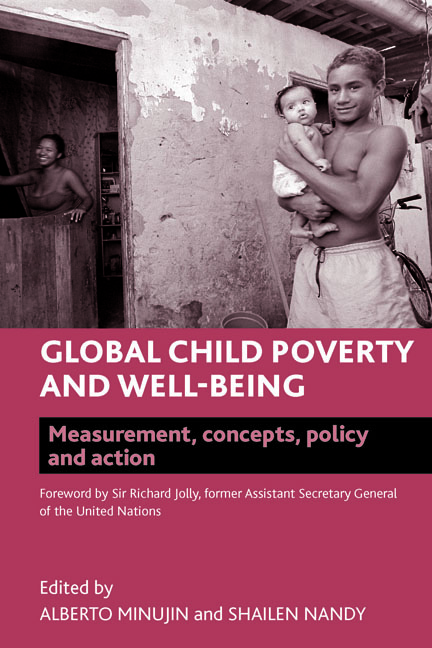ten - Assessing child well-being in developing countries: making policies work for children
Published online by Cambridge University Press: 07 September 2022
Summary
Child development and child well-being are major concerns in many countries, both developed and developing, and are the subject of ongoing concern at the United Nations Children's Fund (UNICEF) as well as the European Union (EU) and the Organisation of Economic Co-operation and Development (OECD). These concerns have led to a search for policies affecting child and family well-being designed to reduce or alleviate child poverty, deprivation, vulnerability and the risk factors that can trigger a lifelong cycle of disadvantage.
The lack of systematic and comparative data on policies affecting children in developing countries and related outcome measures has repeatedly been noted as an obstacle in the further development of policies to promote child well-being (UNICEF, 1998, 2008; Kamerman and Gatenio Gabel, 2007; Save the Children UK, 2008). A prior effort focused on the OECD countries (Kamerman et al, 2003).
This chapter focuses primarily on developing countries and summarises the availability of data on both policies and outcomes measuring child well-being. We begin with a brief discussion of the history, definition and purposes of childhood social indicators in the US and internationally. Following this we present a preliminary child policy paradigm for developing countries. We use this paradigm to organise our explorations of global databases on child policies and policy outcomes. We then assess the strengths and weaknesses of available data for comparative analysis of child policies and outcomes. Finally we conclude with a brief description of current challenges and future needs for international indicators of child-conditioned policies and outcomes.
The purpose of this overall effort is to better understand the wellbeing of children in developing countries and the effects of social policies in these countries on reducing income poverty and improving child well-being.
The interest in children's well-being indicators stems, in part, from a movement towards accountability-based public policy that required more accurate measures of the conditions children face and the outcomes of various programmes designed to address those conditions (Ben-Arieh and Frones, 2007). Rapid changes in family life also prompted an increased demand from child development professionals, social scientists and the public for a better picture of children's well-being.
- Type
- Chapter
- Information
- Global Child Poverty and Well-BeingMeasurement, Concepts, Policy and Action, pp. 245 - 260Publisher: Bristol University PressPrint publication year: 2012



